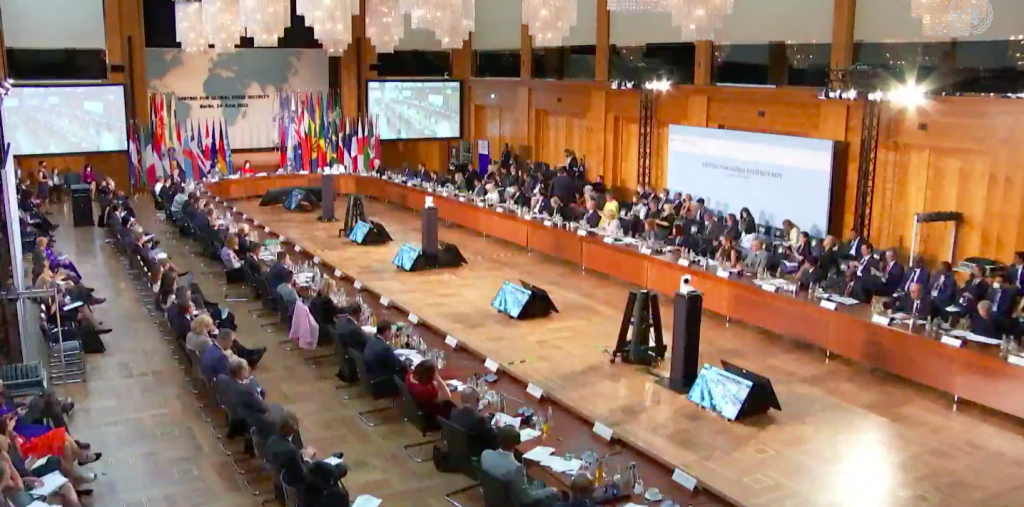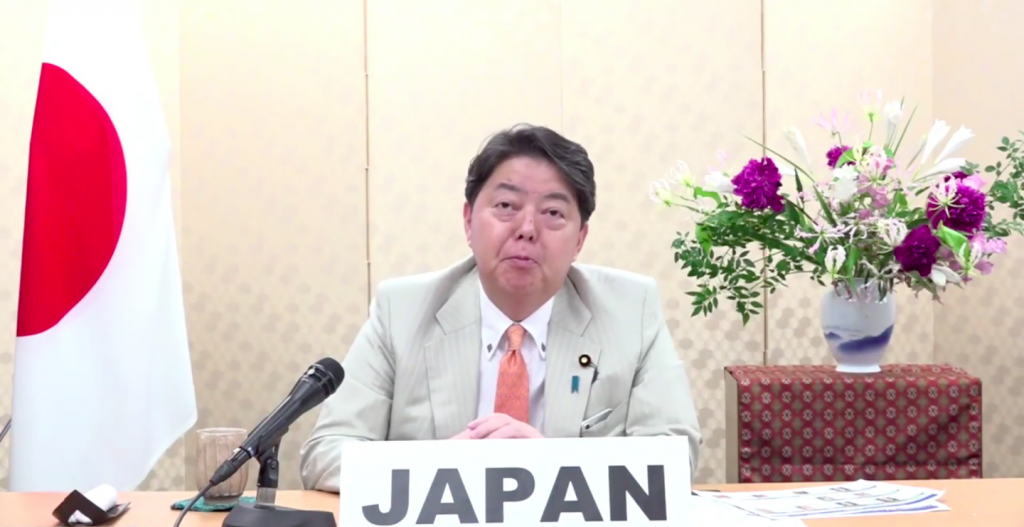



Arab News Japan
TOKYO: With a G7 meeting taking place this week in Germany, a ministerial conference – “Uniting for Global Food Security” – was held in Berlin on Friday in which governments, international and regional organizations, multilateral development banks, non-governmental organizations and philanthropists came together to unite for global food security.
Reports by the United Nations Secretary-General’s Global Crisis Response Group on Food, Energy and Finance have shown a dramatic picture of 1.7 billion people in 107 states impacted by this crisis, a crisis exacerbated by constrained finances, sharply increasing food prices and rising energy prices, the foreign ministry said.
As well as droughts in places like the Horn of Africa, participants noted that Russia’s invasion of Ukraine is putting food security and nutrition for millions of people at risk, particularly in areas that are affected by armed conflicts, climate change and the consequences of the COVID-19 pandemic.
The participants agreed that short- and medium-term support must be programmed in a way that leads to a long-term sustainable transformation of agriculture and food systems. They welcomed the leadership of the United Nations Secretary-General to coordinate efforts to overcome the crisis through the Global Crisis Response Group on Food, Energy, and Finance, as well as initiatives taken by the African Union.
Participants called on Russia to end the war in Ukraine immediately, to stop its blockade of Ukrainian ports and all other activities that hamper Ukrainian food production and exports, putting the lives of millions all over the world at risk.
Foreign ministers from the Group of Seven wealthy countries agreed on Friday that Russia’s invasion of Ukraine had brought about the current global food crisis, and Moscow was responsible for the matter, Japanese Foreign Minister Yoshimasa Hayashi said.
Hayashi made the comment to reporters after a G7 foreign ministers’ meeting, in which he had participated remotely.
Japan intends to support grain exports from Ukraine, and plans to look into further food assistance to respond to the global food crisis, Hayashi said.
They committed to continue their support to Ukraine in keeping up its agricultural production, storage, transport and processing, and to support Ukraine and its neighbors in developing additional export routes for agricultural goods in a speedy manner.
The meeting also underlined the importance of the human right to adequate food as well as Sustainable Development Goal 2 (Zero Hunger by 2030).
In order to be better prepared and to mitigate the implications of the next crisis, participants demonstrated
A readiness to step up capacities in information sharing and early warning, and to focus on the goal of a sustainable transformation of agriculture and food systems.
*with Reuters